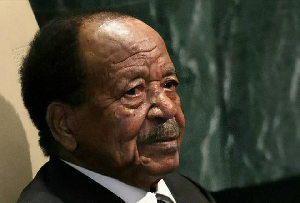Plans are afoot for a new oil refinery and a floating natural gas plant, but operators still worry about low oil prices and conflict in Cameroon’s northern regions.
Despite the downturn in oil prices that began late last year, a number of oil and gas projects are moving ahead in Cameroon.
Oil production has slowly marked a turnaround, but new gas projects hold the most promise to revitalise the industry.
Also,the government announced that, it had hired Russian firm RusGaz Engineering to undertake a feasibility study for a new refinery near the port under construction at Kribi.
On 2 June, the Société Nationale des Hydrocarbures (SNH) announced that, daily oil production had reached 100,000 barrels per day (bpd) earlier this year for the first time since 2002.
The government expects the oil and gas sector to generate about 45% of the country’s foreign exchange and 22% of government revenue this year, but Cameroon’s resources make it a minor producer in Africa.
Cameroon, has an estimated 200m barrels of oil reserves.
The offshore Rio del Rey Basin, located close to the border with Nigeria’s oil-rich Niger Delta, is home to 89% per cent of the deposits.
The remaining 11% is spread across the Douala, Kribi-Campo, Mamfe and Logone-Birni basins.
Since February, the SNH has been promoting six exploration blocs in the Rio del Rey, Douala/Kribi-Campo and Mamfe basins.
Perenco, Bowleven, ExxonMobil and Victoria Oil & Gas are among the key players in the country’s oil and gas industry.
While oil prices have slowed exploration globally, some work is continuing in Cameroon.In June, Scotland-based minnow Bowleven began drilling its first exploration well on its Bomono permit in the onshore area of the Douala Basin.
In order to cope with the new oil price environment, Bowleven sold a stake in its Etinde permit in March for $250m.“Against a challenging market backdrop our strengthened balance sheet following the transaction puts us in a strong position,” chief executive Kevin Hart told reporters.
The SNH predicts that new fields will bring annual oil production from 27.5m barrels in 2014 to 57m barrels, or about 150,000 per day, by next year.
Cameroon’s gas production is steadily growing from a low base, led by Victoria Oil & Gas, which is supplying gas for electricity to companies in Douala, Cameroon’s economic hub.
In June, the company said that it is likely to exceed its 2015 production target of 10.4m cubic feet per day thanks to new industrial clients and its supply agreements to the Logbaba and Bassa power plants.
Kribi port critical
The 216MW Kribi power plant, which was commissioned in 2013, is waiting on new gas supplies to reach an expanded capacity of 330MW.
Earlier this year, the SNH and French company Perenco agreed plans to supply gas to the Kribi plant.
Perenco has also grander designs for Kribi and received approval in late 2014 to set up a floating liquefied natural gas plant in partnership with GDF-Suez.
The project is due for completion in 2017 and will have the capacity to produce 1.2m tonnes per year.
SNH director general Aldophe Moudiki told reporters in June: “The resources are higher than the needs identified for all of the ongoing gas projects.
“In fact, the envisaged floating unit can be put in place without any influence on the supply of gas to the Kribi thermal power station and the Douala-based industries, or on the production of chemical fertilisers in Limbe and liquefied natural gas at Mboro.”
The threat posed by instability in Nigeria and the Central African Republic has put some oil exploration ventures on hold.Ongoing attacks in northern Cameroon from the Boko Haram Islamist militia have discouraged exploration efforts in the Waza National Park, especially following the abduction of 10 Chinese road construction workers in the area in May 2014.
Despite the deployment of troops to police the area, investors including China’s Yan Chang are reluctant to resume survey operations at the Zina-Makary block, where it found oil in 2011.
Infos Business of Wednesday, 5 August 2015
Source: theafricareport.com













